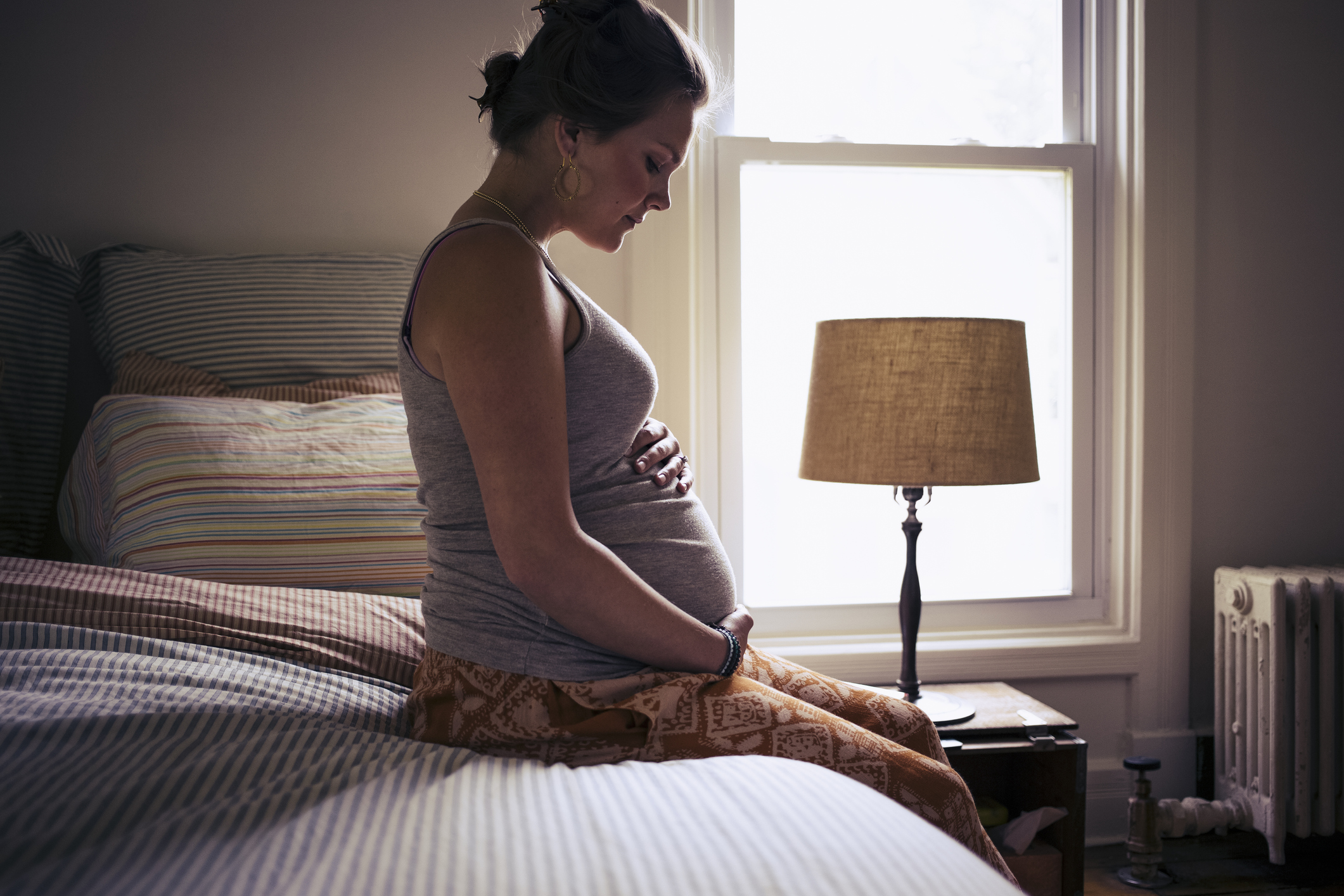
If you’re expecting a baby, you might be wondering if you can get maternity allowance and whether you can still claim it if you are on Universal Credit.
With money tight for millions of households across the UK, knowing how much maternity pay you will receive is crucial to helping you budget more effectively when you start maternity leave. When you understand how maternity pay is calculated, you can assess how soon you might need to return to work. It’s also worth knowing who pays for maternity leave and which benefits you might be entitled to.
Maternity allowance, for instance, is a benefit paid by the government to pregnant women who don’t qualify for statutory maternity pay. However, claiming it could affect other benefits you receive, such as Universal Credit, so you’ll need to be aware of the impact this could have on your finances.
Financial expert Janine Marsh, who runs the Thrifty Family blog, says: “Pregnancy and childbirth can be expensive, so receiving financial support can make a big difference in your ability to cover your expenses and provide for your new family.
“If you are receiving Universal Credit, it's important to know whether you can also claim maternity allowance because it can affect the amount of support you receive. By understanding your entitlement to maternity allowance and how it affects other benefits, you’re able to budget better during and after your pregnancy.”
Who can get maternity allowance?
You might be able to get maternity allowance if you do not qualify for statutory maternity pay (SMP) from your employer. To be eligible for SMP you need to have worked for your employer for a set amount of time and to have earned at least £123 a week, on average. If you don’t meet these requirements, or if you’re self-employed, you might be able to get maternity allowance instead.
Head of employment at law firm Whitehead Monckton, Antonio Fletcher, explains: “To be eligible for maternity allowance you must have been employed or registered as self-employed for at least 26 weeks in the 66 weeks before your baby is due, and earn £30 a week or more in at least 13 of those weeks.”
You might still qualify if you have recently stopped working, and it won’t matter if you’ve had different jobs or periods of unemployment.
You can claim maternity allowance once you’ve been pregnant for 26 weeks. Payments can start 11 weeks before your baby is due.
How much do you get with maternity allowance and how long for?
If you’re employed or have recently stopped working, the amount of maternity allowance you’ll get will be either £156.66 per week or 90% of your average weekly earnings, whichever is lower.
You can get maternity allowance for up to 39 weeks, so if you take the full 52 weeks of statutory maternity leave, the last 13 weeks will be unpaid.
If you’re self-employed, you can get between £27 to £156.66 a week for the 39-week period, as Aisling Foley, solicitor in the employment team at SAS Daniels, explains: “Exactly how much you will get within this range is dependent on how many Class 2 National Insurance contributions you’ve made in the 66 weeks before your baby is due.

“To put this into practical perspective, to get the maximum of £156.66 you must have been registered with HMRC for at least 26 weeks in the 66 weeks before the baby is due and have paid Class 2 NI contributions for at least 13 of those 66 weeks. If you have not paid any Class 2 contributions, you will only be entitled to the minimum of £27 per week.”
If you do unpaid work for your spouse or civil partner’s business, you can get £27 a week for up to 14 weeks.
Maternity allowance is paid every two or four weeks, usually straight into your bank account.
What’s the difference between maternity pay and maternity allowance?
The main differences between maternity pay and maternity allowance are the eligibility criteria and who pays it. Maternity pay is paid by your employer, who then claims the SMP back from the government. Maternity allowance, on the other hand, is paid directly by the government.
Financial expert Janine Marsh told us: “Maternity pay is the payment an employer makes to an employee who is taking time off work due to pregnancy and childbirth. Statutory maternity pay is a legal entitlement for eligible employees.
“Maternity allowance, on the other hand, is a government benefit paid to those who do not qualify for statutory maternity pay. It is available to self-employed individuals or those who have recently stopped working.”
Can you claim maternity allowance at the same time as Universal Credit?
Maternity allowance can be claimed at the same time as claiming Universal Credit, but it is treated as income for Universal Credit purposes and is deducted in full. This means you might no longer be eligible for any Universal Credit during your maternity allowance period or you might receive less than usual.
Solicitor Aisling Foley says: “As an example, a single parent with one child and no housing costs may receive more in maternity allowance than their maximum Universal Credit entitlement. In this situation, the individual would not be entitled to any Universal Credit for the period in which they were in receipt of maternity allowance.”
Universal Credit was brought in during 2015 and replaces some older benefits and tax credits. Universal Credit is going up in April in line with inflation, meaning it will rise by 10.1%. You can get extra Universal Credit for your first and second child.
However, receiving maternity allowance doesn't mean you’ll be excluded from all other types of financial help. You’ll still be able to claim child benefit, for example.
Financial expert Janine Marsh says: “If you're unsure about your maternity and Universal Credit entitlements, you should seek help from a benefits advisor or contact the Department for Work and Pensions (DWP) for guidance. There is also a benefits calculator that’s free to use on the gov.uk website.”







